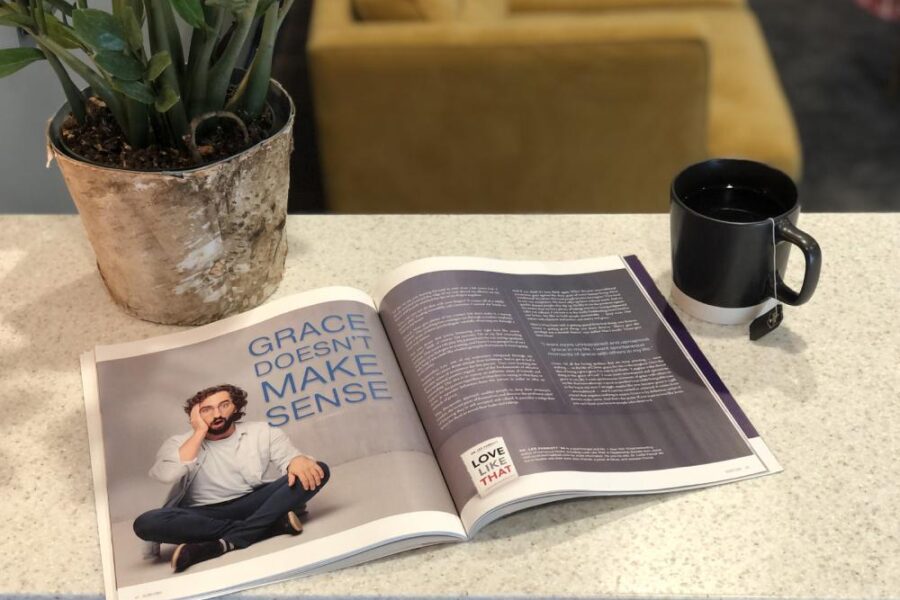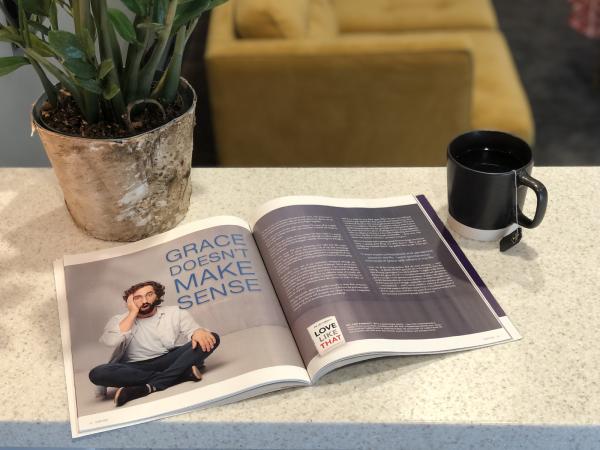
In his insightful article in the winter 2020 issue of Olivet The Magazine, “Grace Doesn’t Make Sense,” psychologist and No. 1 New York Times bestselling author, Dr. Les Parrott ’84 reminds us that even though Christ’s grace isn’t earned or deserved, it is a beautiful gift that we should accept and cultivate.

The following are a few excerpts from Dr. Parrott’s full article in Olivet The Magazine, winter 2020.
“Remember, Les,” one of my instructors whispered through my earpiece, “it’s more about attitude than technique. You’ve got to feel a genuine sense of acceptance for this person.” They were teaching me “unconditional positive regard,” one of the fundamentals of effective counseling. The idea is to convey an authentic sense of warmth and respect for the person regardless of what they’re saying or what they’ve done. It separates behaviors from the person in order to offer an attitude of grace.
This therapeutic approach enables people to drop their pretenses, confess the worst parts of themselves, and discover the profound relief of knowing they’re still accepted and valued. It provides a judge-free space for them to reveal their faults and failings.
And if you think it’s easy, think again. Why? Because unconditional acceptance goes against the deep grain of every human being. We’re “conditional” by nature. We want people to earn our respect. They need to win our acceptance. We don’t offer up favor without merit. And we quickly dismiss people who slip up. We like to see the penitent squirm. No matter that we have plenty of failings ourselves; being judgmental rules our reflexes. Criticism is at the ready. Faultfinding seems bred in our bones. We like to hold people accountable — keep score. Our nature seeks fairness and justice, not mercy and grace.
Mercy, it has been said, is getting spared from bad things you deserve. Grace is getting good things you don’t deserve. “Mercy gave the prodigal son a second chance,” says author Max Lucado. “Grace gave him a feast.”
Grace. Of all the loving qualities that are most arresting — most striking — in the life of Christ, grace, for me, is the toughest. I love the idea of being a grace giver. I’m with Karl Barth: “Laughter is the closest thing to the grace of God.”
I want more unrestrained and uproarious grace in my life. I want spontaneous moments of grace with others in my life. But I too often spy a speck in another’s eye while being oblivious to the log in my own. I struggle, maybe like you, because grace is a gift — unconditional — and it can’t be earned or achieved. It comes from a heart that requires nothing in return. Grace is, by definition, unfair. It doesn’t make sense. And that’s the point. If you want to love like Jesus, you can’t limit your love to people who deserve it.
Re-published 2/10/2020
LB




